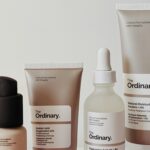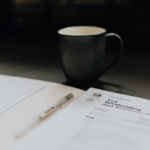Good riddance, August. Seriously. It started with race riots and ended with catastrophic flooding. Prayers to all of you in Texas and Louisiana.
And to top it all off, the baby elephant at the Pittsburgh Zoo died this week. A freaking baby elephant!
September is going to be better. It has to be.
Here are a few things we’re seeing right now:
Lyft is basically just an Uber fallback. A recent look at our data found that 69% of Lyft customers also use Uber. On the flip side, only 27% of Uber riders also use Lyft, despite Uber suffering through a year of bad PR that would make even Wells Fargo blush. I expected to see greater share gains from Lyft this year. Nope.
Speaking of Wells Fargo, they seemed to have completely – if temporarily – bounced back from their little spot-of-bother a year ago. Time will tell if another fake-account scandal affects them long-term but, at least since the last fiasco, customer numbers appear to have rebounded. Look how WF’s numbers compare to a competitor like Chase this year (take the “big” movements with a grain of salt – we’re dealing in a small % scale here):

All of this tells us that consumers are quicker to forgive companies for mismanagement, fraud, and bad behavior, than for socio-political statements they don’t agree with. If you don’t believe me, go back and look at virtually every email I’ve sent you for the past 6 months.
Facebook generates over 2X more advertising conversions than Instagram, Snapchat, and Twitter, combined. We wrote about this earlier in the week, presuming it was a pretty straight-forward finding. The next day, a marketing blog picked up the same data and published a bunch of faulty conclusions. They argued that only 16% of Americans crediting a social network’s ads for a purchase they eventually made was an indictment on social media. The problem was that they didn’t ‘rebase’ the numbers to account for actual social media users. See what happens when we look just at daily Facebook users, for instance:

When 36% of a platform’s users not only recall making a purchase based on an ad they saw there, but also willingly admit to it, it tells a much different story.
The markets were surprised on Wednesday by the Conference Board’s report of rising consumer confidence from July to August – but you shouldn’t have been. We told you about this upward trend when it started three weeks ago.
Incidentally, there is a significant correlation between consumer confidence and personal health. Data we gathered this week found that people with a positive outlook on the economy and personal finances were less likely to consider themselves to be overweight, more likely to exercise, and generally consider themselves to be “very healthy.” This makes sense, intuitively. If I have a good outlook in one area of my life, I’m more likely to have a good outlook in others. But the strength of the association impressed me.
Here your random (Coffee) Stats of the Week:
• Coffee comes before breakfast for 60% of Americans. Breakfast comes first for 25%.
• Favorite: Hot coffee (51%), Iced coffee (17%), Neither (19%), Both (13%)
• Best Smell in the Morning: Coffee (55%), Bacon (30%), Pastries (15%)
• 20% of Americans would choose free, bad coffee over no coffee at all
• 12% of Americans are self-proclaimed “coffee snobs”
And 100% of the people writing this email are drinking a big cup of coffee while doing it. Enjoy the long holiday weekend.
Hoping you’re well,
JD








